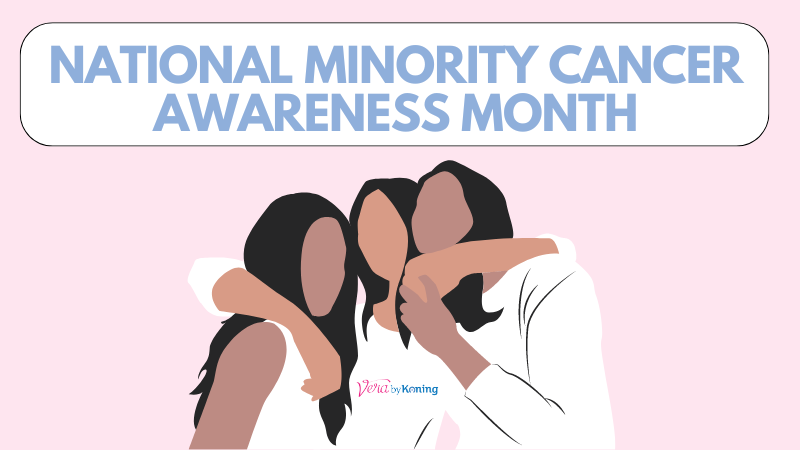
- Blog /
- April 24, 2024
National Minority Cancer Awareness Month
April is National Minority Cancer Awareness Month, a time to bring attention to the disparities faced by racial and ethnic minority groups in cancer care. In line with this, a much needed new publication titled "The role of racial and ethnic discrimination in breast cancer disparities" by Jennifer Moodley and Karla Unger-Saldaña sheds light on the urgent need to address and eliminate racial and ethnic disparities in breast cancer care. Published in The Lancet on April 15, 2024, this study examines how discrimination can influence health outcomes, community structure, as well as healthcare delivery mechanisms: In the case of breast cancer, there is substantial evidence that racial and ethnic minority groups often present with more advanced cancer stages, aggressive biological subtypes, and lower survival rates compared to dominant groups.
According to Moodley et al., breast cancer risk has been linked with poverty, neighborhood disadvantage, and racial discrimination. Much of the research on racism in health care comes from high income settings in the US, and while the exact mechanisms behind this association are not yet fully understood, evidence suggests that living in disadvantaged neighborhoods may lead to chronic psychosocial stress reactivity and inflammation. These factors, in turn, contribute to the development of these aggressive breast cancer types.
Discrimination also plays a role in shaping the structure of communities, often leading to the segregation of minorities and limiting their access to resources like health information and healthcare services. The study suggests that residing in low-income, racially segregated neighborhoods is linked to shorter breast cancer-specific survival rates, even for non-Hispanic White patients. Moreover, Indigenous populations living in rural and remote areas worldwide encounter significant challenges in accessing healthcare services, regardless of whether they reside in high-income or low-income settings.
Breast cancer disparities are also affected by discrimination in health care delivery mechanisms, where unconscious biases and prejudice can result in disrespectful interactions, negligence, and even abuse of patients. For example, Black women are more likely to have treatment delays and to receive late-stage diagnosis for breast cancer than non-Black patients. While multilevel systemic interventions are needed to address racial and ethnic discrimination in breast cancer care, studies such as the one featured in this post are perhaps the most significant first step into realizing the problem and building solutions for an equitable future in women’s breast health.
Read more about our vision at Koning here.
Source:
“The role of racial and ethnic discrimination in breast cancer disparities” by Jennifer Moodley and Karla Unger-Saldaña, The Lancet, Published:April 15, 2024. DOI:https://doi.org/10.1016/S0140-6736(24)00699-8
